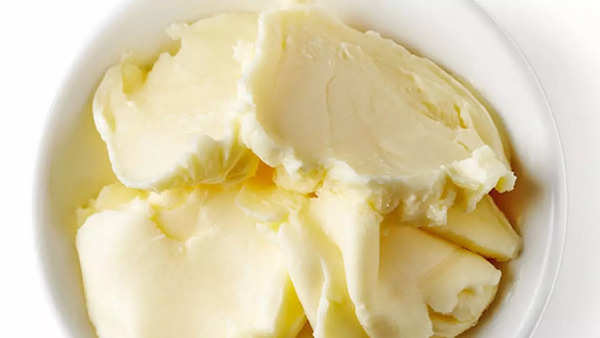Nutritional Content:
Butter:
Butter is primarily composed of milk fat, which contains saturated fat and cholesterol. While it provides small amounts of vitamins A, D, E, and K, it is high in calories and saturated fat, which may contribute to elevated LDL (bad) cholesterol levels when consumed in excess.
Margarine:
Margarine is typically made from vegetable oils, which are naturally cholesterol-free and lower in saturated fat compared to butter. Some margarine products are fortified with vitamins and may contain beneficial nutrients like omega-3 fatty acids. However, it’s essential to check the label, as some margarine varieties may contain trans fats, which have been linked to heart disease.

Health Implications:
Butter:
Butter’s high saturated fat content has led to concerns about its impact on heart health. While saturated fat can raise LDL cholesterol levels, recent research suggests that the relationship between saturated fat and heart disease may be more complex than previously thought. Some studies indicate that moderate butter consumption may not significantly increase the risk of heart disease when part of a balanced diet.
Margarine:
Margarine gained popularity as a healthier alternative to butter due to its lower saturated fat content. However, early margarine formulations often contained trans fats, which are artificial fats created during the hydrogenation process. Trans fats have been strongly linked to an increased risk of heart disease, leading health experts to advise against their consumption. Fortunately, many modern margarine products are now trans fat-free, making them a safer option for heart health.
Cooking and Baking Properties:
Butter:
Butter’s rich flavor and creamy texture make it a favorite ingredient in cooking and baking. It adds depth and richness to dishes and helps create flaky, tender pastries and baked goods. However, butter has a lower smoke point than some cooking oils, making it unsuitable for high-heat cooking methods like frying.
Himalayan black bears in Dachigam National Park get a special winter diet for Winter 2024
Margarine:
Margarine’s versatility makes it suitable for a wide range of cooking applications. Its higher smoke point makes it ideal for frying and sautéing, while its creamy texture works well in baking recipes. Some margarine products are specially formulated for baking, offering similar results to butter in terms of flavor and texture.
Dietary Preferences:
Butter:
Butter is a natural product made from dairy, making it a preferred choice for individuals following a traditional or whole-foods-based diet. Its rich flavor and texture are often preferred in recipes that require the distinct taste of butter.

Margarine:
Margarine is a plant-based alternative to butter, making it suitable for individuals following vegetarian or vegan diets. Additionally, many margarine products are free from animal-derived ingredients, making them suitable for individuals with lactose intolerance or dairy allergies.